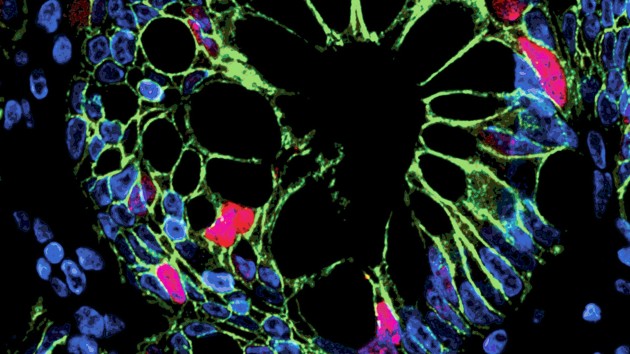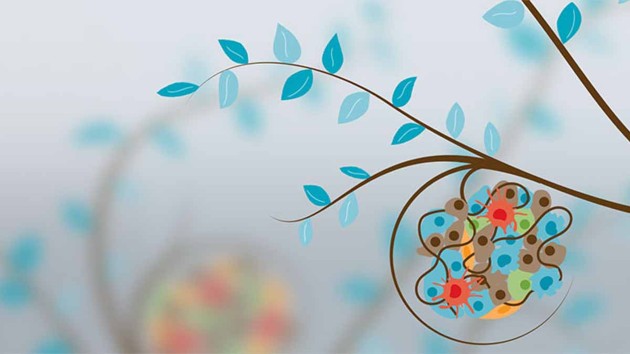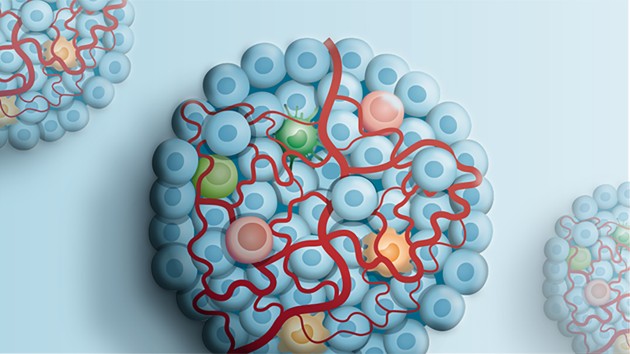Collection |
Collections
Filters
-
Collection Type
-
-
Collection |
 Haematological cancer
Haematological cancer
In this Collection, Nature Reviews Clinical Oncology and Nature Reviews Cancer together present a selection of our most recent articles covering the biology and treatment of haematological cancers highlighting the remarkable advances that have been made in both basic and translational research.
Image: Simon Bradbrook/Springer Nature Limited -
Collection |
 The tumour microenvironment
The tumour microenvironment
This Collection from Nature Reviews Cancer brings together some of our most recently published articles focused on understanding the role the tumour microenvironment plays in tumour progression as well as therapeutic responses and resistance.
Image: Lara Crow -
Collection |
 Stem cells from development to the clinic
Stem cells from development to the clinic
Stem cells are well on their way into the clinic and can be used in a variety of applications, such as disease modelling, drug screening and for regenerative medicine. This collection showcases research articles, reviews and protocols from across the Nature journals to highlight the striking advances made in basic and translational stem cell research.
Image: Miguel Quiros and Asma Nusrat -
Milestone |
 Antibodies
Antibodies
Nature Milestones in Antibodies, presented by Nature Immunology, Nature Reviews Immunology, Nature Structural & Molecular Biology and Nature Communications, highlights some of the most influential developments in the history of antibody research.
-
Collection |
 Cancer Evolution
Cancer Evolution
In this collection, the cancer editorial community of the Nature journals presents the most recently published articles on cancer evolution. The topic is discussed from different angles (preclinical, translational and clinical), and across a range of tumour types.
-
-
Series |
 Cancer origins
Cancer origins
A clearer understanding of the biological underpinnings of cancer origins might help us design more effective cancer prevention methods or improve early detection of tumours that are likely to become malignant. Furthermore, delineating the cell of origin of a specific tumour and the evolutionary changes that underlie its development should also improve our ability to effectively treat that tumour. All of these goals will be aided by increased knowledge of the early pre-neoplastic changes in cells that have the capacity to become tumorigenic, determining the cells of origin of different cancer types, and understanding the interactions of pre-neoplastic or tumour cells with each other as well as with the supporting microenvironment. This series of articles takes a look at recent progress in the diverse fields that have provided insights into this intriguing problem in cancer biology.
-
Collection |
 Autophagy
Autophagy
A web focus from Cell Death & Differentiation, Cell Death & Disease, Nature Reviews Cancer, Nature Cell Biology, Nature Reviews Molecular Cell Biology and Nature Structural & Molecular Biology. We hope you enjoy this focus including work from the world's most recognized experts in the field of autophagy.
-
Series |
 Clinical insights
Clinical insights
Clinical studies can teach us a great deal about the processes and mechanisms underlying cancer, and they also remind us of aspects of cancer that we still do not understand. For example, why patients with metastatic special neuroblastoma undergo spontaneous tumour regression; why some rare types of cancer are metaplastic; and why some patients are exceptional responders to chemotherapy. In recognition of these types of informative findings from the clinic that are often overlooked by laboratory-based cancer researchers, we have commissioned a series of Clinical insights Comment articles. Thinking more broadly about these more unusual aspects of cancer might help us overcome some of the current stumbling blocks in cancer research.
-
Focus |
Tumour immunology & immunotherapy
This joint Focus issue from Nature Reviews CancerandNature Reviews Immunologyfeatures specially commissioned articles that discuss the promise of immunotherapy to treat cancer and how key immune cells function in the tumour microenvironment.
-
Special |
Cancer metabolism
A renaissance in the field of cancer metabolism, enabled by methodological advances and better molecular understanding of metabolic pathways, has demonstrated close links between the oncogenic pathways that drive tumorigenesis and the mechanistic basis of tumour cell metabolism. This collection showcases recent progress in the field, highlighting the promise of new therapeutics based on interfering with metabolic pathways.

 Rare Cancers Collection
Rare Cancers Collection
 Tumour metabolism
Tumour metabolism